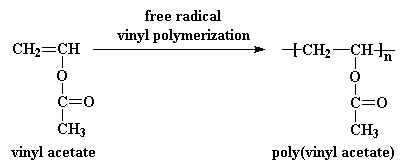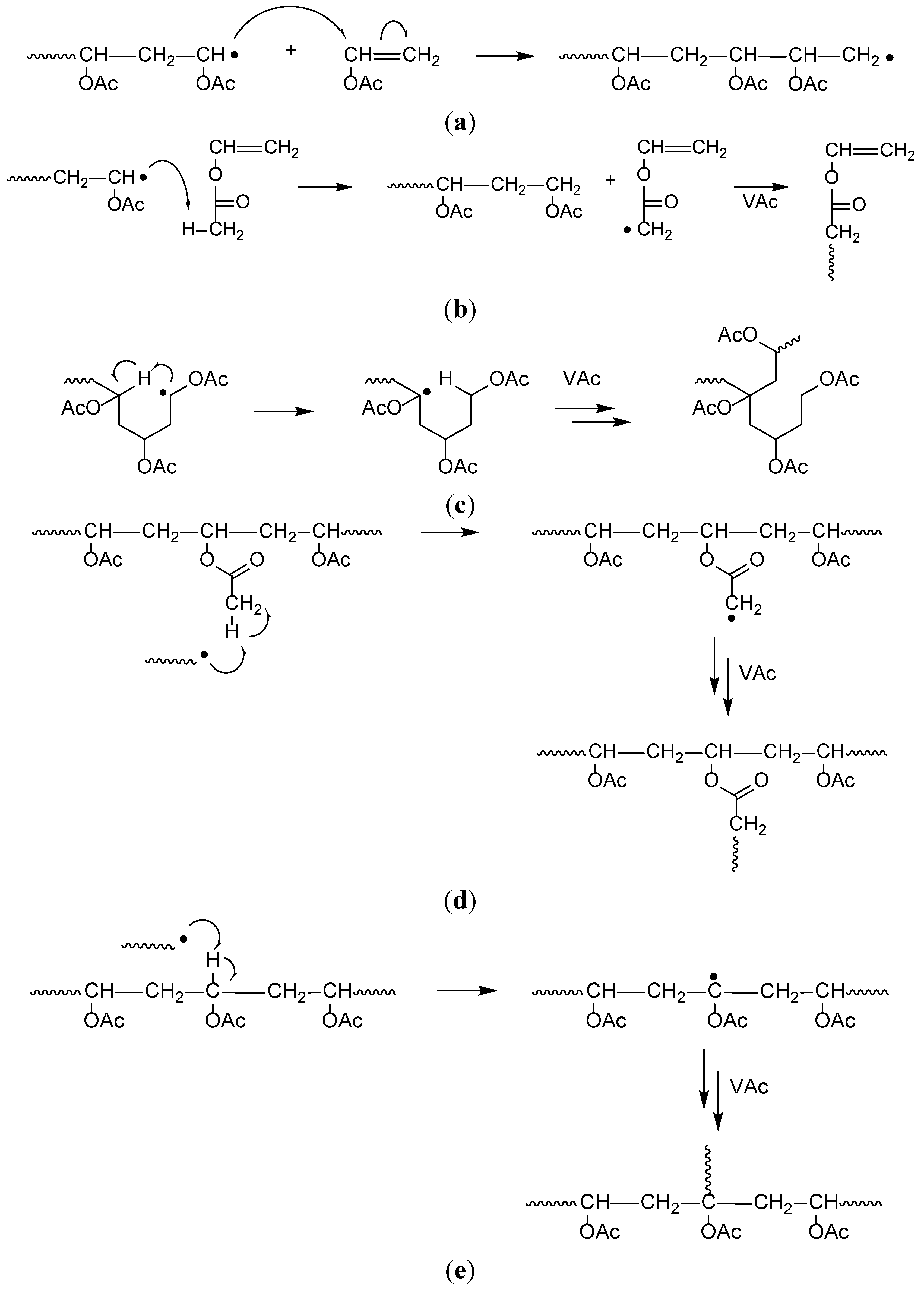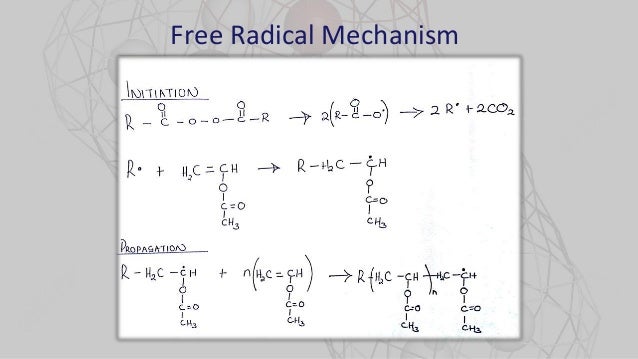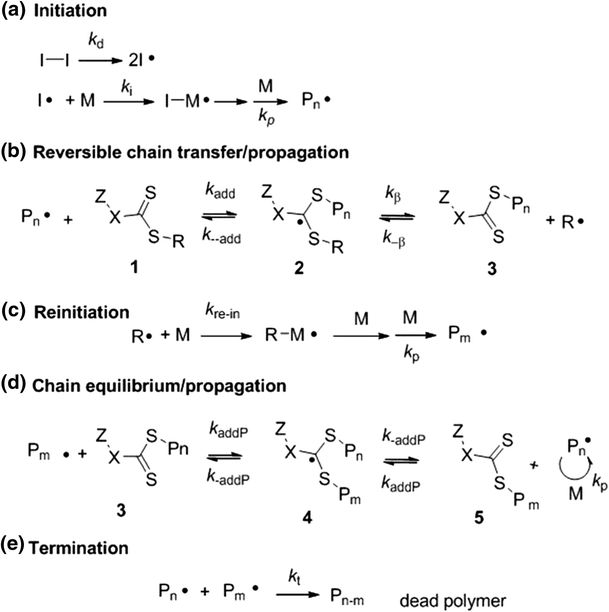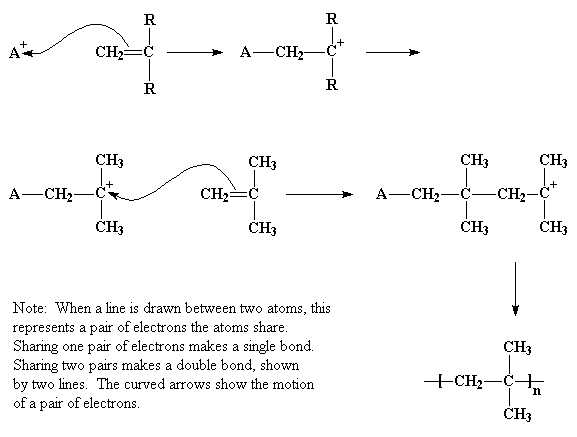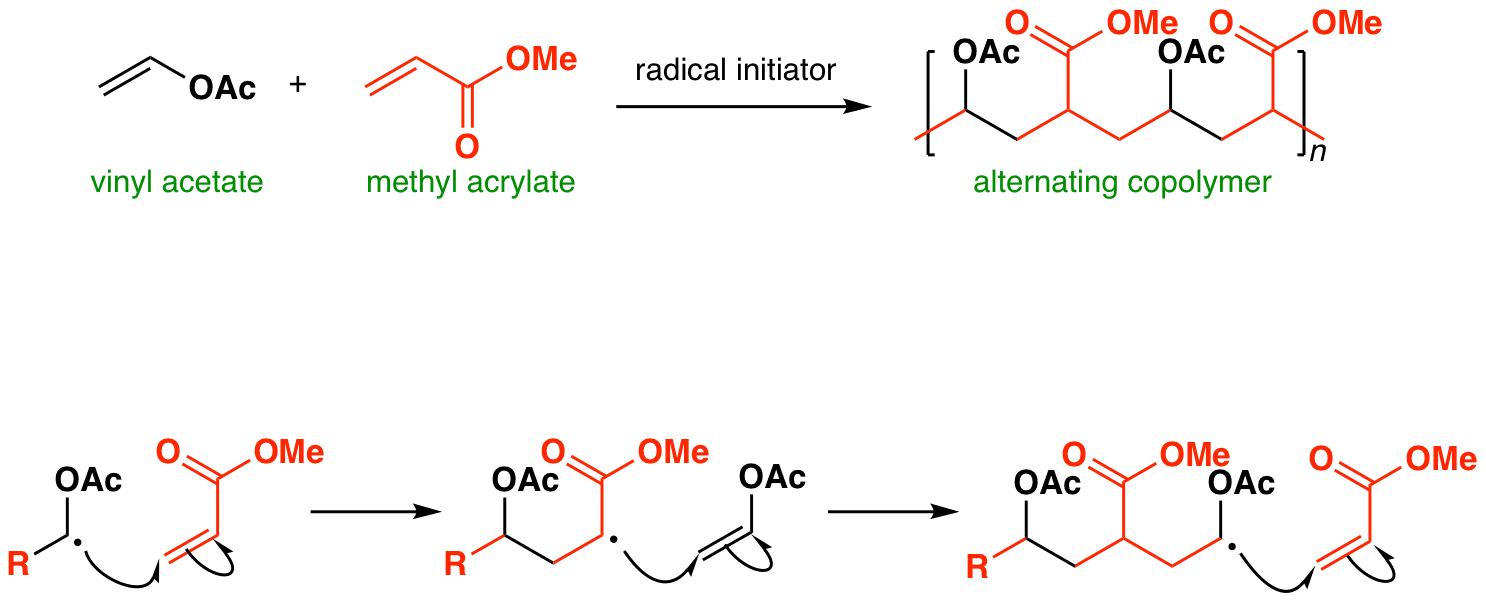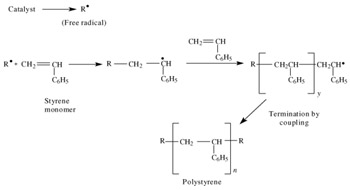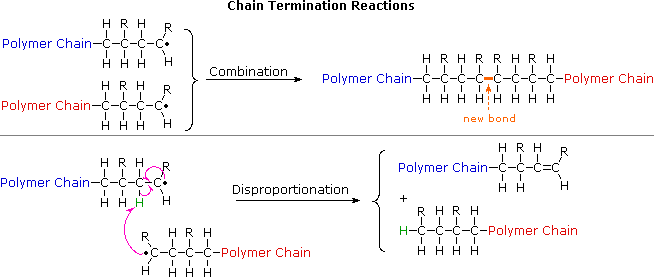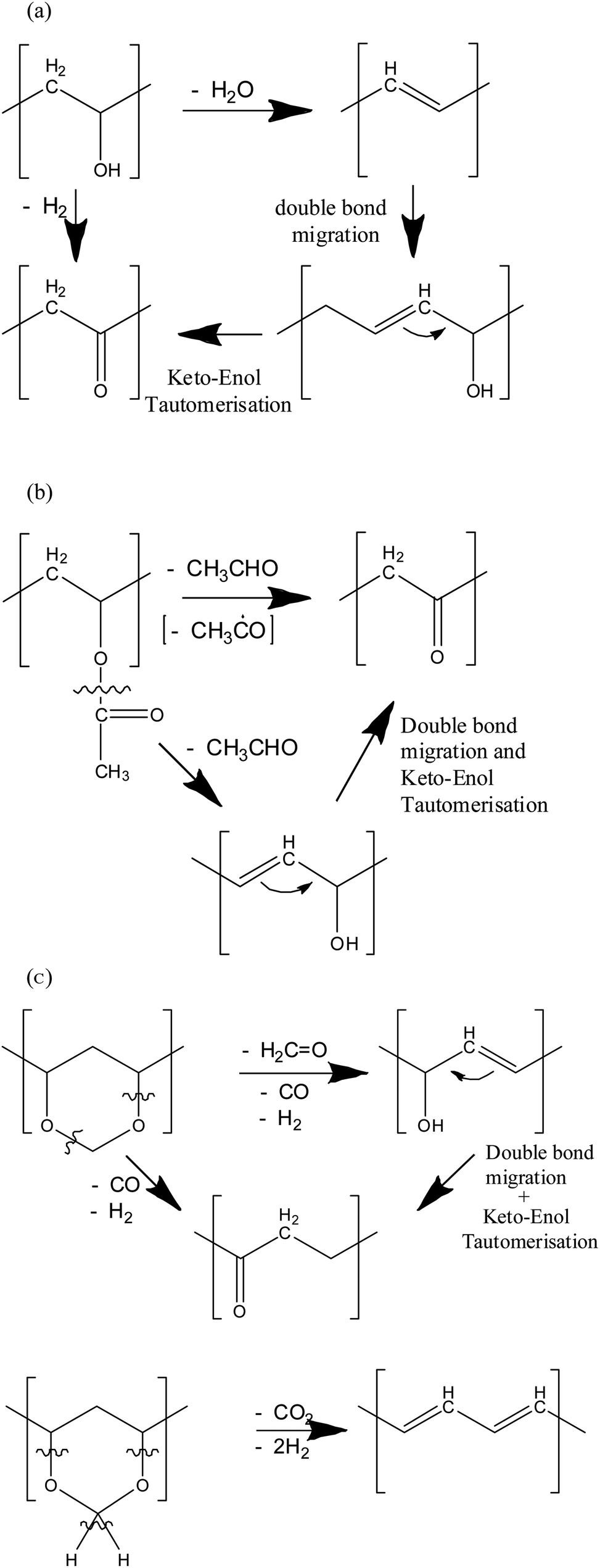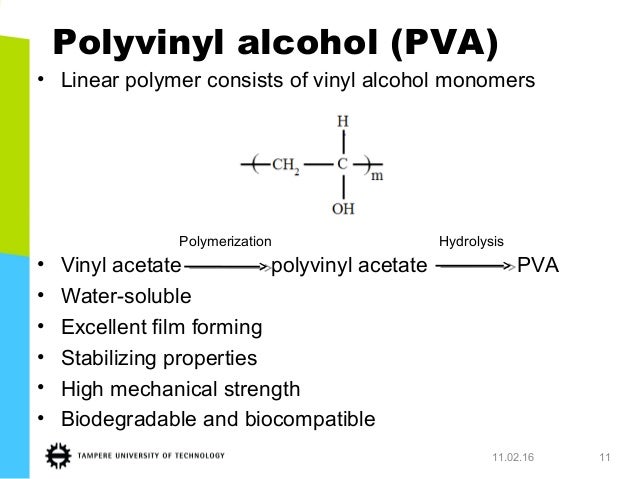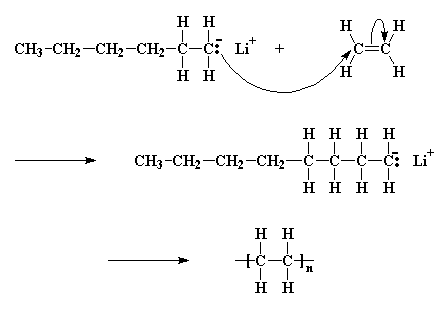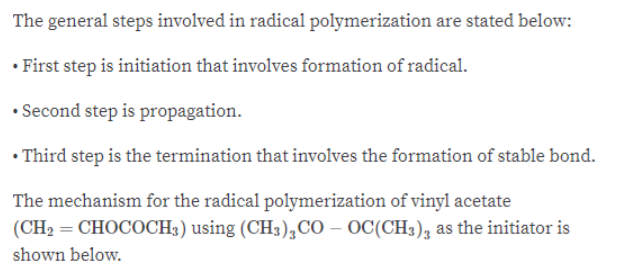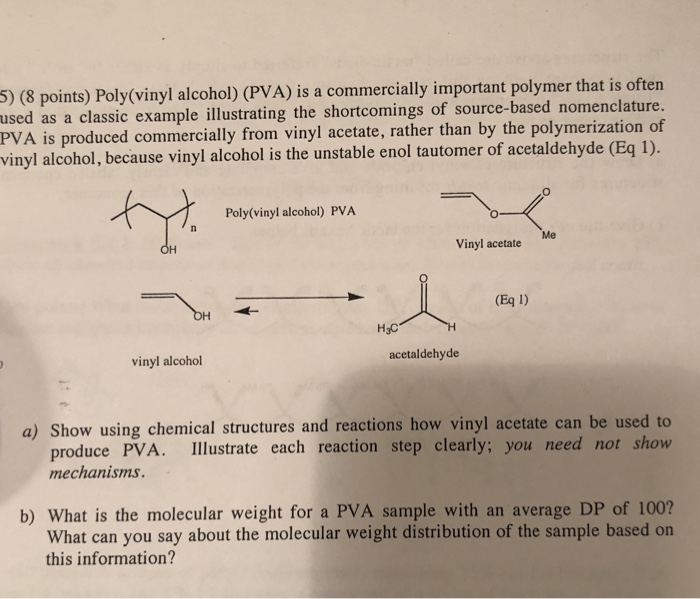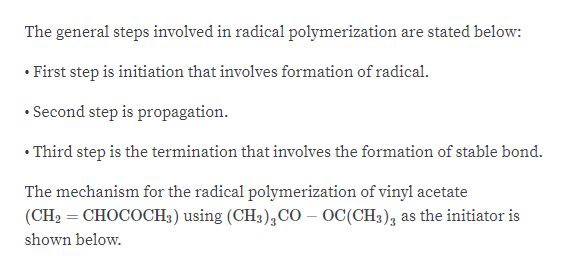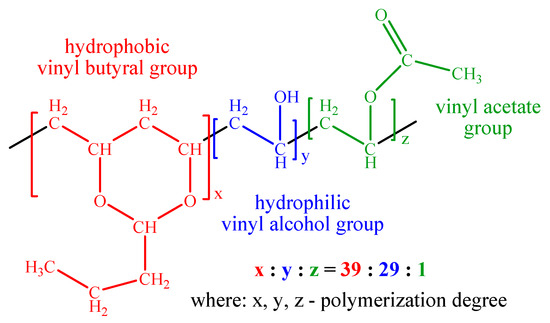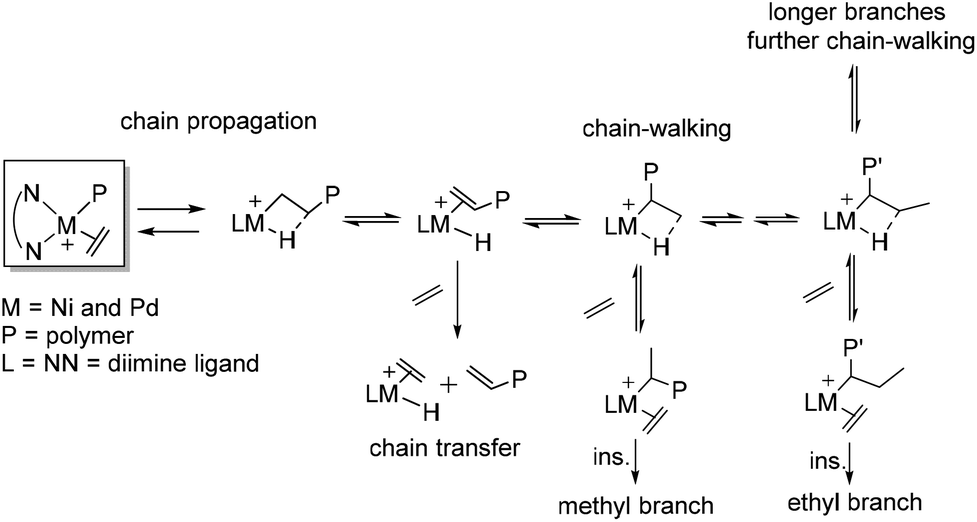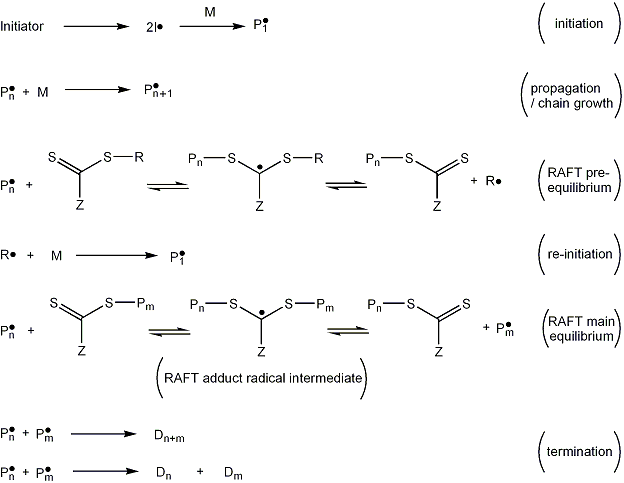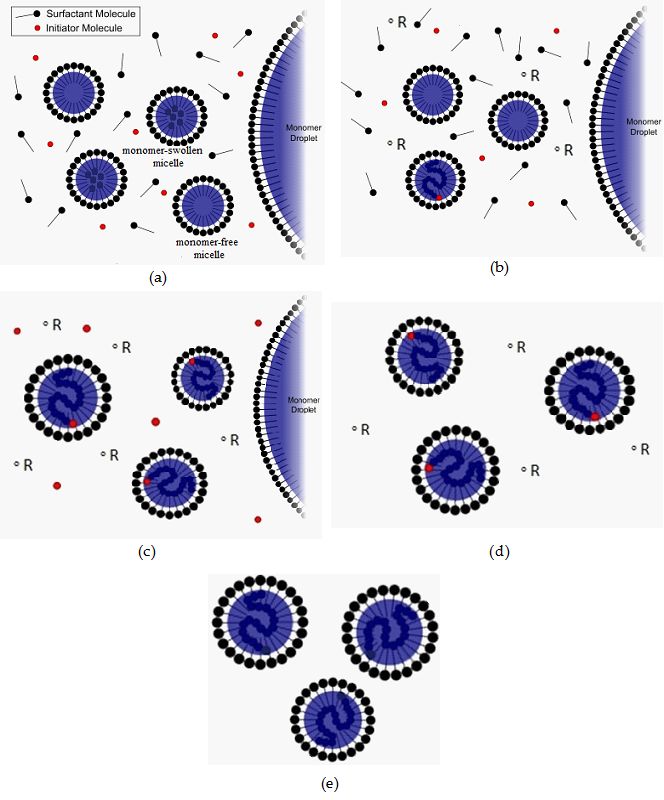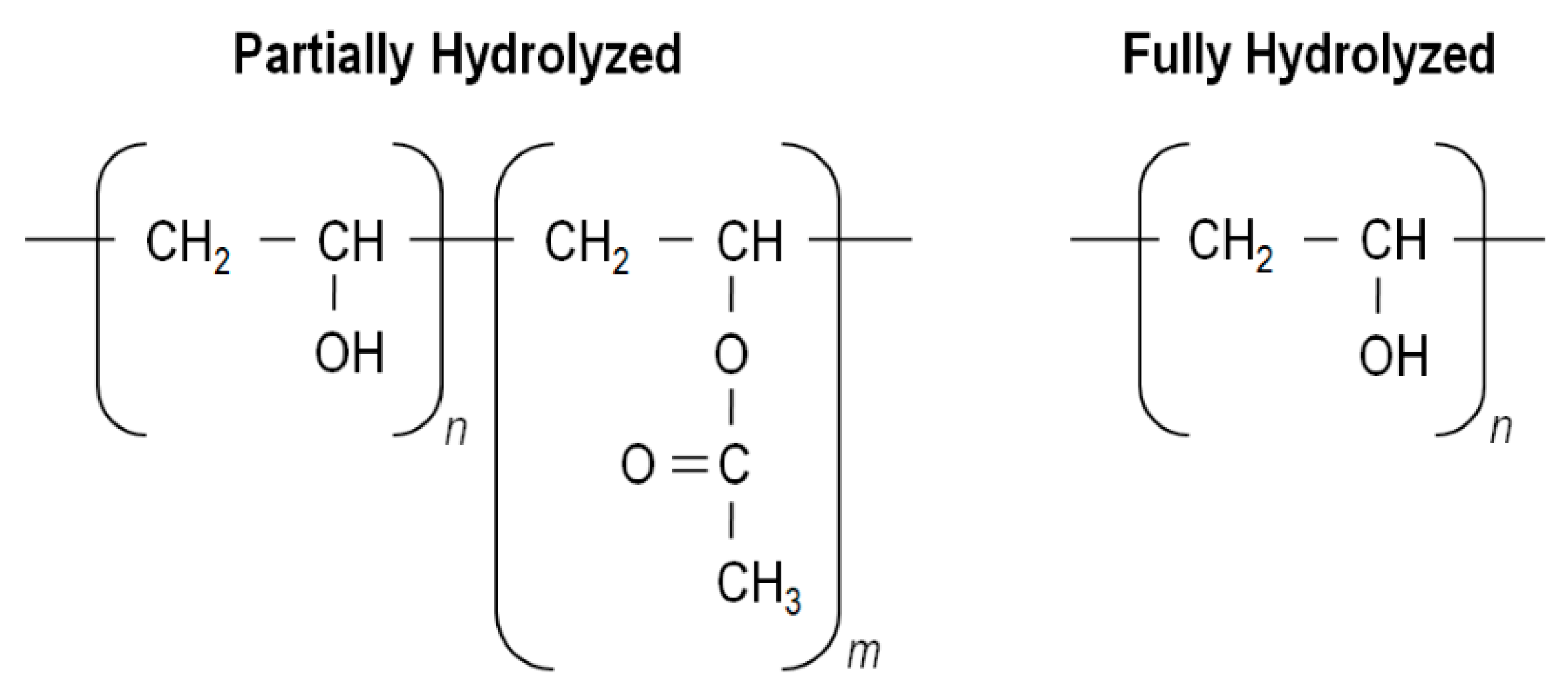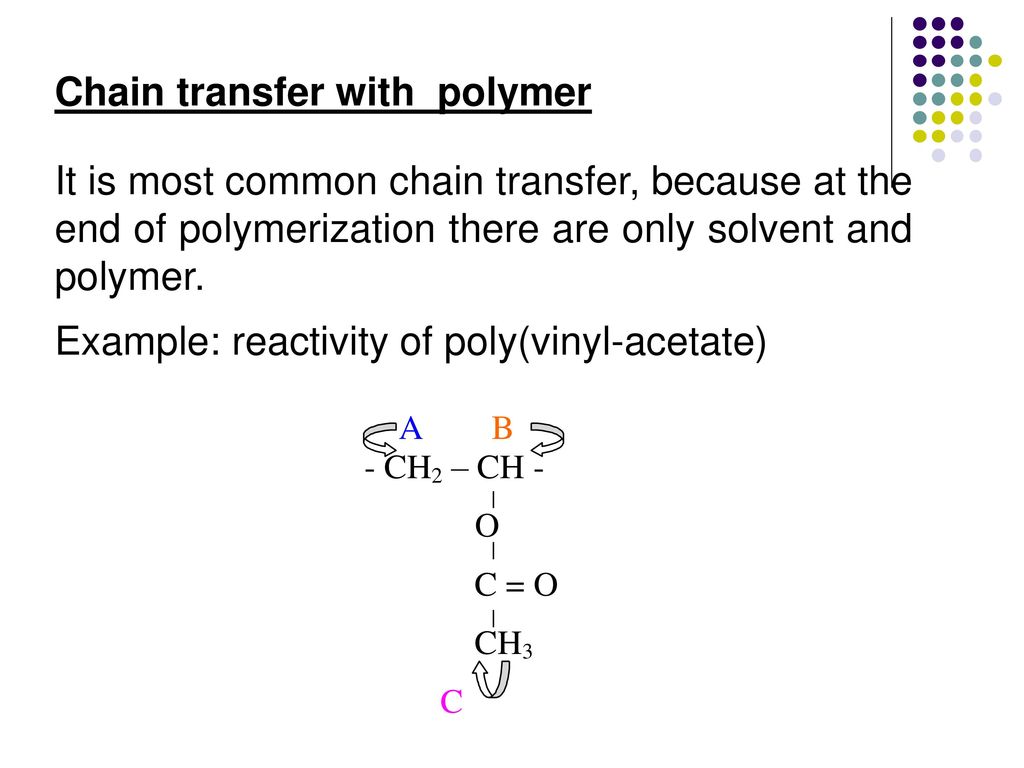Polymerization Of Vinyl Acetate Mechanism
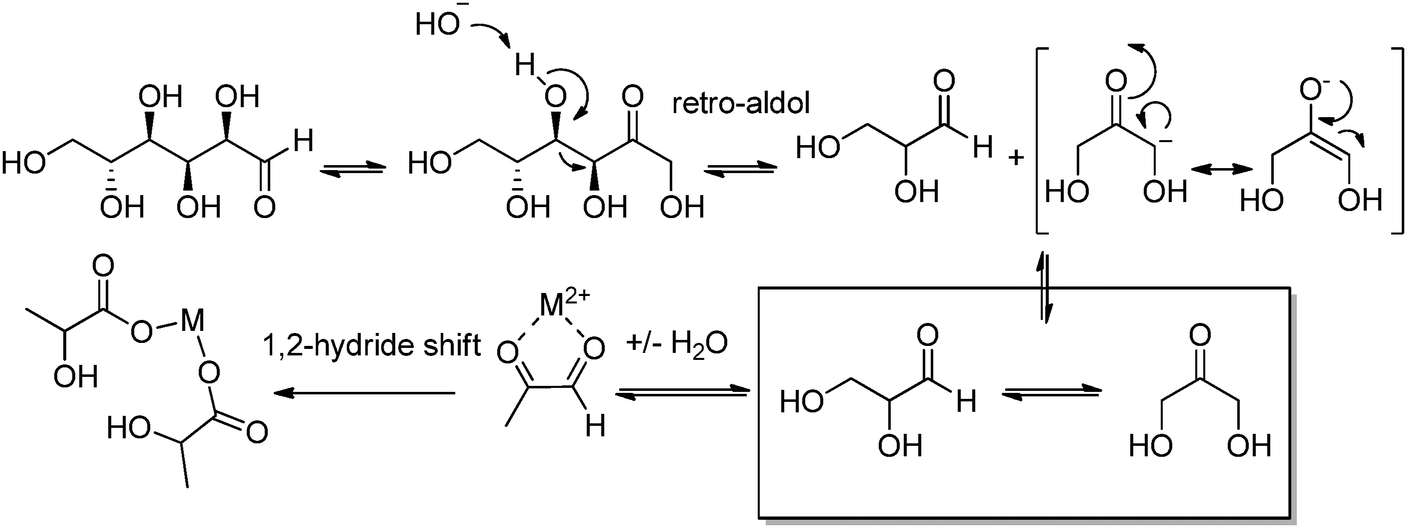
Kinetic studies and polymerization mechanism d.
Polymerization of vinyl acetate mechanism. It is used to make polymers from vinyl monomers. Both the aqueous phase. Several aspects of this system have been clarified including the induced decomposition of persulfate retardation by oxygen and entry by and. Polymers made by free radical polymerization include polystyrene poly methyl methacrylate poly vinyl acetate and branched polyethylene.
This work investigates the kinetics of the emulsion polymerization of vinyl acetate. The bulk polymerization of vinyl acetate in storage vessels occurs spontaneously under constant temperature conditions due to a chemical acceleration phenomenon related to the free radical nature of vinyl acetate chain polymerization. Mechanisms and techniques 10 1021 bk 2012. Pemberton napier college colinton road edinburgh eh10 5dt uk and.
The initiator was azobis isobutyron1trile. Polymerization of vinyl acetate using visible radiation and a dye reducing agent sensitizer. Polymerizations were carried out at 50 0 c 1 and one atmosphere pressure in a 0 5 liter four neck flask. That is from small molecules containing carbon carbon double bonds.
Mechanism of the stabilized radical controlled polymerization of vinyl acetate. Zhigang xue rinaldo poli investigation of bis acetylacetonato iron ii as a moderator for the radical polymerization of vinyl acetate progress in controlled radical polymerization. Vinyl acetate vac is one of the most challenging monomers to work with in preparing polymers with controlled architec tures. The degree of polymerization was.
The mechanism of growth of latex particles in the emulsion polymerization of vinyl acetate using a polymerizable surfactant sodium dodecyl allyl sulfosuccinate trem lf 40. Polymerization of vinyl acetate. Contrary to what has been reported. The emulsion polymerization of vinyl acetate was investigated with the use of block copolymers of ethylene and propylene oxides commercially known as pluronic surfactants as emulsifying agents.
